| On June 17,1972 at the scene of
the crime the burglars; Bernard C. Barker, Vilgilio R. Gonzales, James W.
McCord, Eugenio R. Martinez, and Frank A. Sturgis all broke into the
Democratic Party's National Committee Offices. They dug into their
campaign files and tapped their phones. The only person that worked
there that knew about this was Frank Wills. If he would of never
helped them the scandal would of never started. |
| Nixon's reaction to Watergate was
not very good. During 1973 and 1974 Nixon made three speeches on the
scandal. the first speech was on the departure of Dean, Haldeman,
and Ehrlichman on April 30,1973. On August 15, 1973 a more defiant
speech was delivered. But the most difficult speech on April 29, 1974 was
when he talked about the White House tapes. |
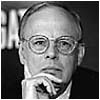 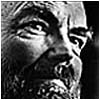 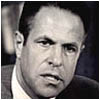
Dean
Ehrlichman Haldeman
|
| The investigation of Watergate
started in February of 1973. That's when the Senate Committee started. The
initial investigation of Watergate was influenced mostly by the
media. There was two reporters from "The Washington Post,"
their names where Bob Woodward and Carl Bernstein. The public
hearings of the Committee where focused on the evidence of John
Dean. He was Nixon's former White House Counsel man. Dean
brought up secrets of the White House tapes, which sparked a major
political battle between Nixon and Congress. In 1974 the House authorized
the Judiciary Committee to consider impeaching Nixon, the vote went
8-0. Nixon had other problem too, the IRS found out that he made a
deduction of his income taxes, which had been after they passed the tax
laws. After that the IRS charged him with back taxes and
interest. The burglars of Watergate and two other plotters where all
charged with burglary, conspiracy, and wire tapping. |
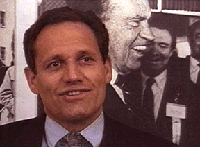
Bob Woodward
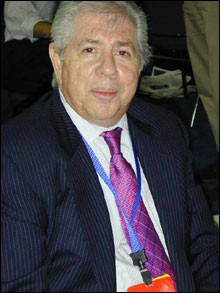
Carl Bernstein
|
| In late July and early August of
1974 Nixon spent his final days in the White House. Nixon had three
different things he could do. One was the Articles of Impeachment. The Supreme
Court came with its final blow to order Nixon to release the tapes.
This was know as the "Smoking Gun." People around the
country thought that Nixon should resign, even the former
president. Then on August 8, 1974 Nixon delivered his resignation
speech in front of millions of people. Harry S. Truman thought of
Nixon as, "a no good lying bastard, he can lie out both sides of his
mouth at the same time, and if he ever was caught telling the truth he'd
lie just to keep his hand in." |
| The aftermath of Watergate had a
different consequence in the United States. There was a list of casualties
and convictions. It made changes in campaign finance reforms and
made more aggressive attitudes by the media. By 1997, the 25th anniversary
of Watergate, people had written books and made movies that told the
story. But in 1994 Richard Milhous Nixon died, he was eulogized
by Bob Dole.
|
|
Richard Flach
8th American
History
Rossville Jr.
High
Post-World War II
America Project
May 2002 |
Bibliography |
